Monkey acne has become a "international emergencies". The last time was a new crown
Author:Shell net Time:2022.07.24
On July 21, 2022, Geneva, the World Health Organization held a conference on the outbreak of multi -country monkey acne for the second time, and then announced that the epidemic of the monkey acne epidemic constitutes "PHEIC" (PHEIC). The highest level alert.
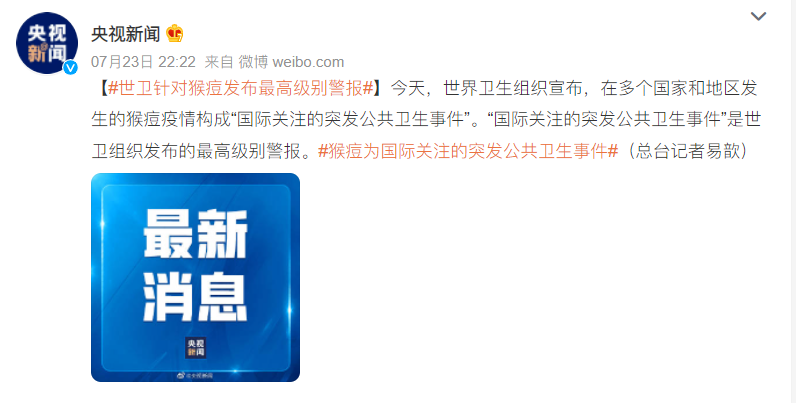
Monkey acne epidemic constitutes an international concern public health incident 丨 Weibo@
In May of this year, 12 countries and regions reported the case of monkey acne, and the number of patients increased rapidly. As of now, a total of 75 countries and regions around the world have reported more than 16,000 suspected suspected monkey acne and laboratory confirmed cases. Many countries that have not reported the case of pox acne before are disseminated.
Regarding the symptoms of monkey acne disease, infection, and vaccine, the fruit shell has published the article "Monkey acne has begun to be passed on, can the vaccine scars on the arm protect me? ", Click the link to understand the details.
Considering the complexity and uncertainty of the epidemic incident, in order to reduce the risk of the international propagation of monkey acne epidemic, the WHO finally determined that the epidemic of the monkey acne constituted PHEIC.
What is PHEIC?
In 2003, severe acute respiratory syndrome (SARS) was the first global public health emergencies in the 21st century. In this incident, all countries realized that the current staff flow is very fast, and a group of people gathering together today can be distributed to all parts of the world tomorrow. Public hygiene safety is no longer a country or region, and it has become a problem that requires global collaboration.
In order to face similar incidents again, countries can effectively prevent and respond, and the World Health Conference revised the old regulations into the International Health Regulations (2005) in 2005. And proposed the definition of PHEIC- "the public health risks of other countries through the international communication of the disease, and different events that may need to take coordinated international response measures."
It means that the current incident is serious, sudden, unusual, or accidental; public health influence exceeds the national border; international actions may be taken immediately. The factors that affect the event of PHEIC include: cases of disease infection, death cases, infectious, therapeutic effects, and population density of the population area; the speed of development of the disease; whether the country is spreading; whether it is necessary to restrict international travel and trade.
Prior to the announcement of PHEIC, the World Health Organization announced a total of 6 PHEICs, namely:
1. 2009 H1N1 influenza virus epidemic situation
2. 2014 Wild spinal ash ceckitis virus epidemic
3. In 2014
4. 2016 Brazil's Zika Virus epidemic situation
5. The Ebola epidemic in Congo (Gold) 2018
6. 2020 new crown epidemic situation
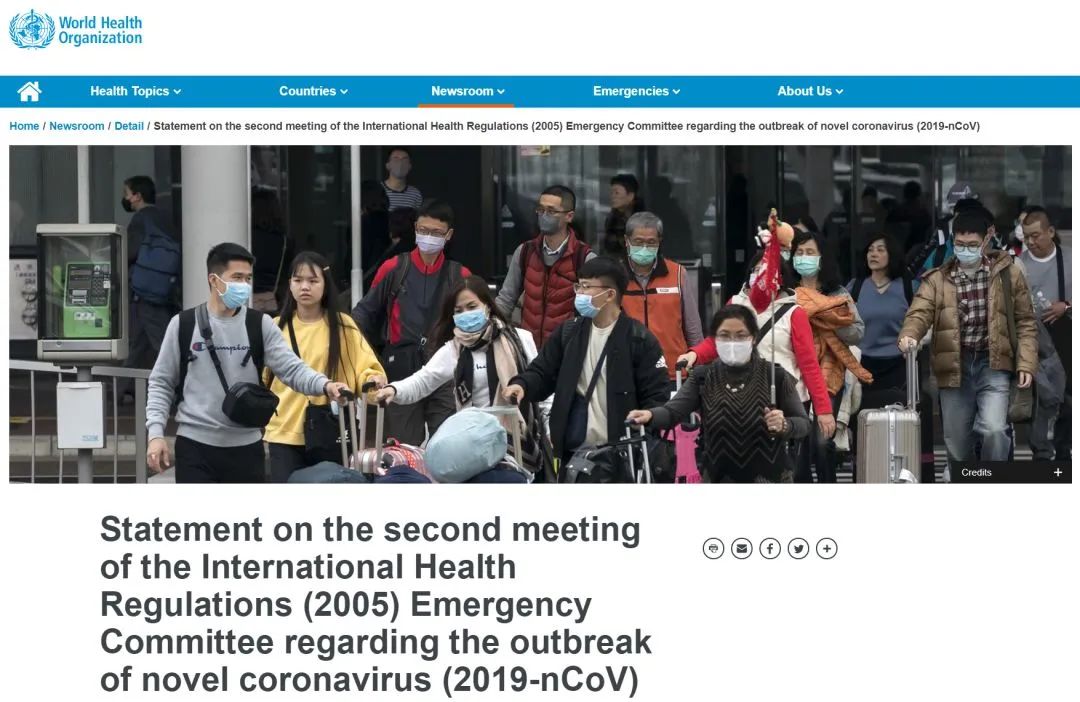
In January 2020, WHO announced that the new crown pneumonia has constituted a public health incident | WHO
Two round meetings,
Finally decided that monkey acne constitutes PHEIC
WHO is very cautious about announcing PHEIC, because it is necessary to reduce the transnational communication of the disease, and it must also try to protect international trade and transportation as much as possible. The emergency committee usually holds many meetings according to the development of the epidemic, and decides after the balance and disadvantage of the situation at the time.
On May 29, 2022, WHO issued a statement saying that the continuous outbreak of the epidemic of monkey acne is currently in a moderate risk of global public health. On the afternoon of June 23, the World Health Organization Commission held the first meeting, arguing that the epidemic of the monkey acne epidemic did not constitute PHEIC. At the same time, the committee also suggested that in the next few weeks, we will continue to monitor and review the epidemic in the next few weeks. Once more unknown information shows that the situation has changed significantly, it will re -consider whether the epidemic of the monkey acne is PHEIC.
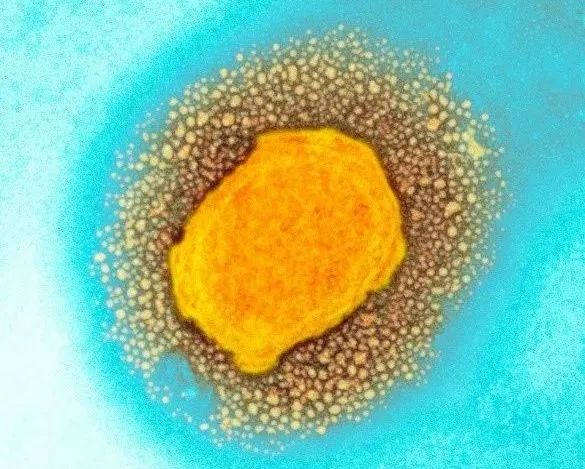
Monkey acne virus (color transmitted electron microscopic photo) 丨 Uk Health Security Agency/Scoto Library
At the meeting held this week, the expert group of the emergency committee also had different opinions on whether the epidemic of the Monkey Acne.
Supporting people believe that the outbreak of the monkey acne epidemic meets the standard of PHEIC, that is, the special incident, the epidemic situation that constitutes public health risks in other countries and regions, and may need to be coordinated. In more than more and more countries, the number of cases of poxy reports is on the rise, and the scale of the epidemic may be underestimated. Especially the current mode of transmission of monkey acne is similar to the early stage of AIDS. If monkey acne continues to spread among people around the world, because the global immunity of acne virus has been greatly reduced after eliminating smallpox, which will constitute a greater risk for global health.
Members who opposed the announcement of PHEIC believed that although the number of cases was increasing, there were no signs that any data showed an index level, and most of the patients had a low level of disease. In addition, most cases are found among male and male actors. Although there are challenges, there is still the opportunity to prevent the continuous spread of the epidemic by intervening in this group of people.
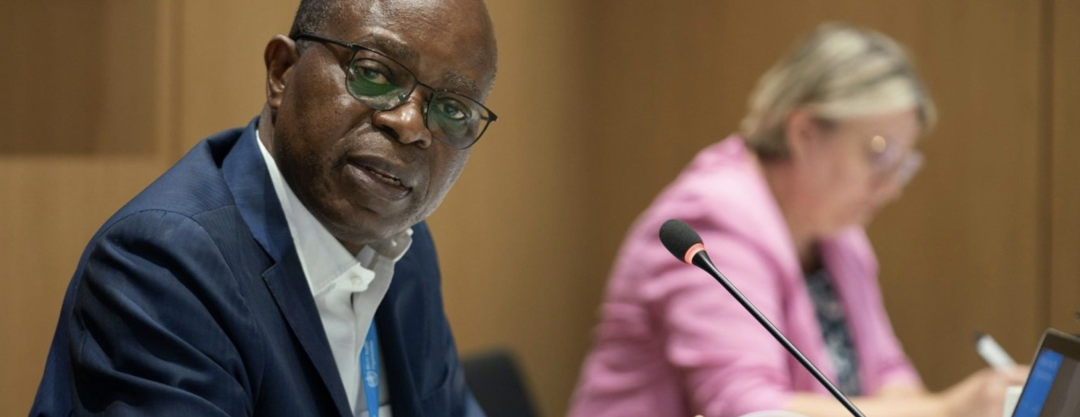
Figure | WHO
There are disputes within the emergency committee and no consensus has not been fully reached. In the end, 9 of the 15 members of the 15 committees believed that PHEIC should not be announced, and 6 people supported it. However, in addition to the suggestion of the emergency committee, when the WHO decides whether to constitute PHEIC, it also needs to consider other factors in other aspects. It is not necessarily just a few obedience most:
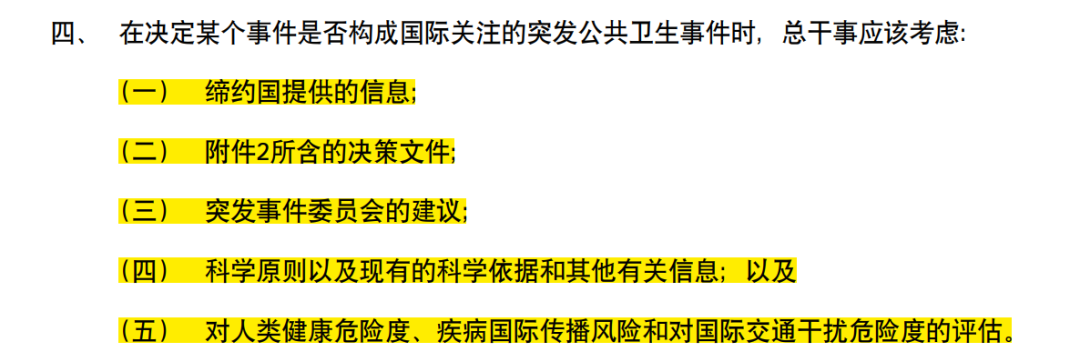
The factors need to be considered when deciding whether to constitute PHEIC.丨 The Opinions of the International Sanitation Regulations (2005) and PHEIC standards, especially those who are worried that the epidemic may spread from specific high -risk groups to more vulnerable people, such as pregnant women and children with low immune function. Therefore, despite the controversy of the participating members, WHO eventually determined that the epidemic of monkey acne outbreak of multiple countries constitutes PHEIC.
According to the development of the epidemic, it can be revoked and modified at any time after announced. After the release, it is valid for 3 months, and it will be automatically invalid afterwards.
Risks and benefits coexist, but you must act
It is proposed that PHEIC is to face public health risks, which can prevent or reduce the transnational communication of the disease, but also does not cause unnecessary interference to international trade and transportation, causing economic losses in relevant countries and regions. After determining PHEIC, the World Health Organization will release a temporary suggestion, including the sanitary measures that people, items and transportation should take people, items and transportation. And coordinate global human resources, and give the PHEIC region guidance and help if necessary.
This time the monkey acne announced that PHEIC, WHO gave a long list of temporary suggestions, which requires countries to take action based on disease epidemiography and communication mode. Specific suggestions are divided into 4 groups, for countries that have not found monkey acne cases, countries that are undergoing interpersonal dissemination, countries that are local diseases are local diseases, and countries that are capable of producing monkey acne vaccines and therapies.
Monkey acne on the skin | CDC.Gov
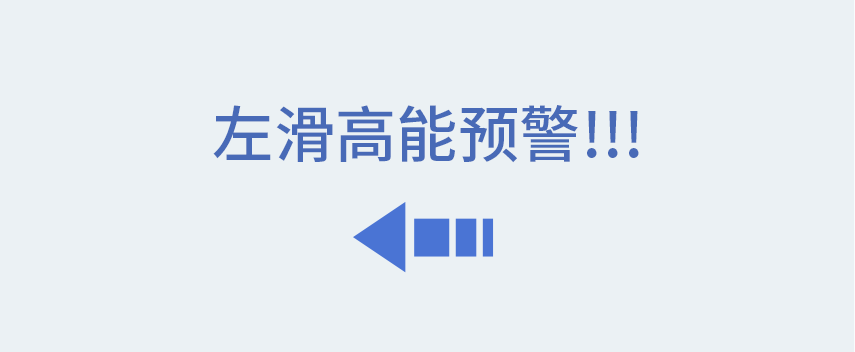
For example, as in mainland China, if there is no history of monkey acne in the past or no cases of monkey acne is found for more than 21 days, it is necessary to strengthen preparation, establish and strengthen epidemiological monitoring, such as training medical and health workers, obtaining reliable diagnosis, Testing, paying attention to high -risk groups (male performers, sex workers), etc. For example, for countries with input cases or communities such as Britain and the United States, risk communication, community participation, case detection, support isolation cases and treatment, tracking contacts, and high -risk people immunociated vaccination.
Regarding monkey acne, the benefit of PHEIC is to further improve the level of global alertness, which can prevent the risks of global interpersonal spread in the world to a greater extent. International coordination will also help the fair acquisition of vaccines and antiviral drugs. In addition, it is announced that PHEIC can increase the fundraising and distribution of research funds and assistance funds. Monkey acne has been popular in African countries for decades, but has been ignored, and has been lacking in research and funding. As the Director -General of the World Health Organization Tedros Ghebreyesus: "All of this must be changed, not just monkey acne, but also low -income countries and other neglected diseases in the world."
But there are still risks. On the one hand, it is announced that PHEIC may cause excessive panic from some countries, leading to the closure of related tourism and trade in these countries, and affecting the life and economy of the epidemic area. On the other hand, due to the particularity of the Monkey Acne epidemic dissemination mode, PHEIC may increase discrimination, abuse and stigma, especially in countries and regions that are illegal or regarded as criminals in homosexuality.
But anyway, taking action is necessary. Just as Josie Golding, the head of the British Wikkang Trust Fund epidemiological disease, said: "As the case of monkey acne continues to rise and spreads to more countries, we are now facing double challenges: one is ignored in Africa being ignored For decades of local diseases, and a new type of epidemic affecting the marginalized community. Governments of various countries must take this issue more seriously and work together to control this epidemic ... We cannot continue to wait for the disease upgrade, we cannot continue to wait for the disease upgrade. Then intervene. "
Monkey epidemic and this time it was announced as PHEIC, all sounding the alarm to people, and need to strengthen the ability to prevent emergencies around the world.
What is the monkey acne,
Is it so terrible?
MonkeyPox is a disease caused by monkey acne virus infection, and it is also a common disease of humans and animals. Although the name "monkey" is in the name, the natural host of the monkey acne is still unknown. Scientists have also found monkey acne virus on some rodents such as marmot and squirrels.
After the news of the epidemic of the monkey acne, many people thought of its close to the ceiling. Monkey acne virus, smallpox virus (cause of smallpox), and acne virus (for smallpox vaccine) all belong to acne virus acne virus. These types of viruses have certain similarities. For example, after people infection, shepachery can cause similar appearance; but at the same time, their disease manifestations and pathogenic ability are different. For example, the total death rate of smallpox virus is about 30%, monkey acne The mortality of the virus is currently 3%~ 6%.
Monkey acne can develop interpersonal communication, but the current efficiency is low
Most of the past cases of human infection of monkey acne virus include the history of travel areas of epidemic areas. The cause of infection is mainly exposed to infected animals, including being caught or biting by infected epidemic animals, contacting their body fluids, and eating raw meat.
In addition, monkey acne transmission may also occur between people, which can be caused by close contact with the infected respiratory tract secretions, skin lesions, or recently contaminated objects. However, the interpersonal communication efficiency of monkey acne is low, and it is easy to occur under long -term and face -to -face contact conditions. Therefore, the risk of infection of the family members and health workers of the infected persons will be relatively high.
In addition, monkey acne has certain self -limiting. Most infected people will heal within 2 to 4 weeks without special treatment. However, children, pregnant women, or people who cause immunosuppressive due to other health conditions may be serious. At present, the new antiviral drug TECOVIRIMAT has been approved for the treatment of monkey acne, but it has not been widely used, and its effect still needs to be further verified in use. Keep close attention
my country has never been reported in the diagnosis of monkey acne, but due to the influence of globalization and internationalization, as the epidemic situation of other countries worsen, the risk of input cases in my country will increase accordingly. Therefore, various countries and regions, including my country, need to pay attention to epidemic information in a timely manner, and strengthen cooperation in epidemic reporting, virus research, drugs and vaccine development and distribution in order to build a global infectious disease defense line.
Most infectious diseases and epidemiologists believe that countries have already undergone the test of infectious disease prevention and control. At present, the ability of monkey acne virus to spread is limited, and there is no need to take extensive strict prevention and control measures. Even if the number of cases has increased No need to worry about monkey acne virus.
At the same time, scientists will maintain alert and close attention to changes in viruses and epidemic, and continue to explore the causes, impacts and best solutions of the epidemic of the monkey acne.
references
[1] https://www.who.int/news/item/23-07-2022-seacond-meeting-of-the- interniational-health-regulations- (2005) -emergeency-comparDarding -The-Multi-Country-OUTBREAK-OF-MONKEYPOX
[2] https://www.who.int/news/item/25-06-2022-meeting--the- interniational-health-regulations- (2005) -emergeency-comparding-the-multi--multi- Country-Monkeypox-OUTBREAK
[3] World Health Organization. International Health Regulations (2005) 3rd edition. 2016.
[4] https://www.statnews.com/2022/07/23/who-declares-nkeyPox-ebreak-public- health-emergeency/
Author: Li Xiaoqiu, Dai Tianyi
Edit: Black Jio Sister
- END -
8 measures are released!Up to 20 million yuan!
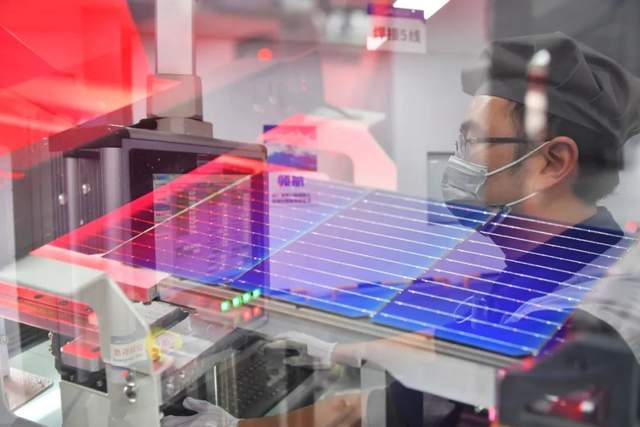
A few days ago, Several Policies for Promoting the High -quality Development of th...
How to inherit folklore more confidence
Once upon a time, we farther away from traditional folklore until a certain moment, our hearts were hit again.A few months ago, the Chinese people re -be stunned at the opening ceremony of the Winter